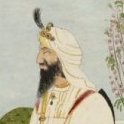-
Topics
-
-
Posts
-
Part of the problem is the hostilities between India and Pakistan. If the border were open, Amritsar would easily become a huge trading city. Secondly, the National Highways Authority of India is constructing a new 6-lane expressway from Kashmir, through Amritsar/Jalandhar/Ludhiana to Dehli which will be part of the Ludhiana-Delhi-Kolkatta Industrial Corridor. Maps of the New Silk Road show Kolkata as a key part of the "road". The Punjab to Kolkata expressway and rail connections will fulfill the ability to hook up to the New Silk Road. In addition, while crossing to Pakistan via AH1 (Asian Highway 1) is difficult, India does connect to AH1 on the other side, towards the East. Finally, Punjab can trade with the world via Mundra port in Gujurat. Rail to Mundra, then sea onwards. Dubai is very close with a free port. If you send products to Iran, there are ground links onward to Europe.
-
Yeah, that's one possibility. Another I initially thought is that it's a Muslim trying to gather info. But then, you might ask, how does he know about Sikh textual sources. Well, you'd be surprised at their resourcefulness. A final possibility is he's a weak Sikh who was asked a question by a non-Sikh and now he's suddenly feverishly wondering where it's "written" that you can't marry a young child. To the latter, I would say, you're looking in the wrong spot. Gurbani isn't a 1428 page rulebook, like Leviticus or the Vedas: ਸਿਮ੍ਰਿਤਿ ਸਾਸਤ੍ਰ ਪੁੰਨ ਪਾਪ ਬੀਚਾਰਦੇ ਤਤੈ ਸਾਰ ਨ ਜਾਣੀ ॥ ਤਤੈ ਸਾਰ ਨ ਜਾਣੀ ਗੁਰੂ ਬਾਝਹੁ ਤਤੈ ਸਾਰ ਨ ਜਾਣੀ ॥ The Simritis and Shastras discriminate between charity and sin, but know not the essence of the Real Thing. Without the Guru, they know not the essence of the Reality, know not the essence of the Reality. Anand Sahib.
-
You're confusing two different things: One is merely adding starch to a turban to get a certain feel to the fabric. The other is tying your turban once and taking it off like a hat. It is this that people have a problem with. What's wrong with it is that Rehit says to tie your turban afresh every time. If you ask, "Where is that written?", it's written in Bhai Nand Lal ji's Rehitnama. @ipledgeblue didn't just make it up. Umm, no, bro. We're not evangelical Christians like President George W Bush of the US claiming to "talk to God" who told him to invade Iraq. "Speaking to him directly" basically ends up being doing whatever you feel like with the excuse that Guru ji told you to do it. If you still want to take your turban off like a hat, feel free to do so, but don't claim that it's Rehit.
-
You don't need to wear either a pag or dumalla in the gym. You can simply wear a meter or 1.5m small turban (gol pagg or round turban). It doesn't come off.
-
The reason you don't see anything wrong with it is because like a fish in water, you grew up in Western culture and imbibed it fully. It's very difficult to for parents to inculcate traditional culture while in the West. The reason there is a problem is because a kiss between a man and wife is a sexual act (I didn't say it's coitus, but it's still sexual.) By contrast a kiss between a mother and a child, for example, is not sexual. And in our culture, sexual acts are not allowed in public. Goras do allow it. And that's also the reason they have gay pride parades now with people walking around naked with children in attendance and so forth.
-







Recommended Posts
Join the conversation
You can post now and register later. If you have an account, sign in now to post with your account.